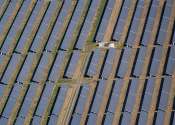AI exemplifies the 'free rider' problem—here's why that points to regulation
On March 22, 2023, thousands of researchers and tech leaders—including Elon Musk and Apple co-founder Steve Wozniak—published an open letter calling to slow down the artificial intelligence race. Specifically, the letter ...
May 5, 2023
5
23









